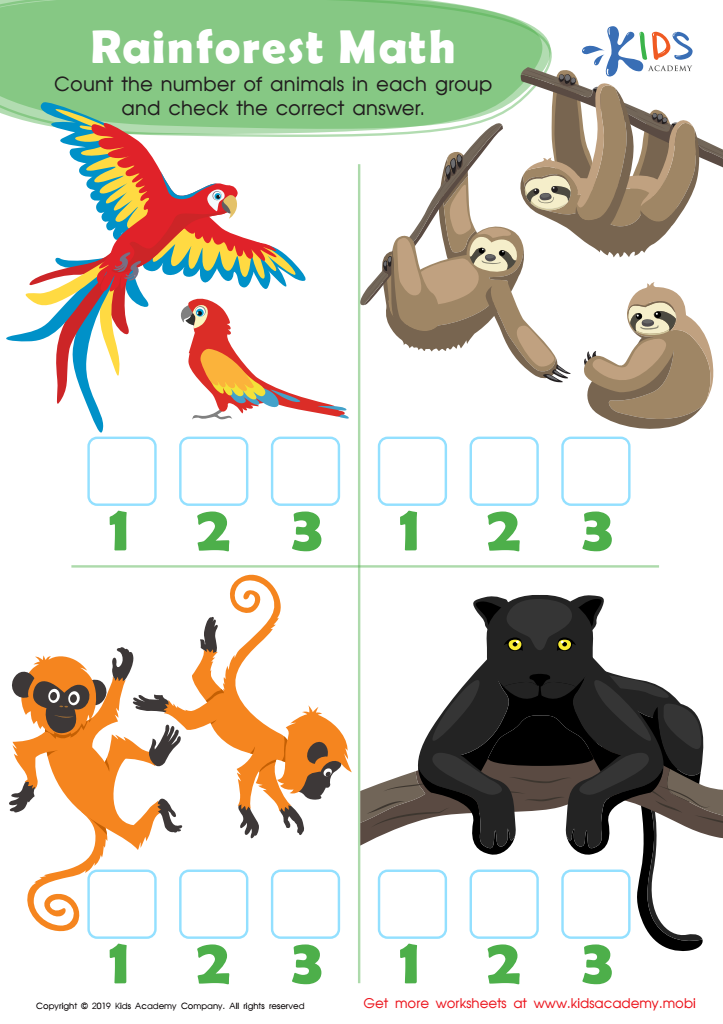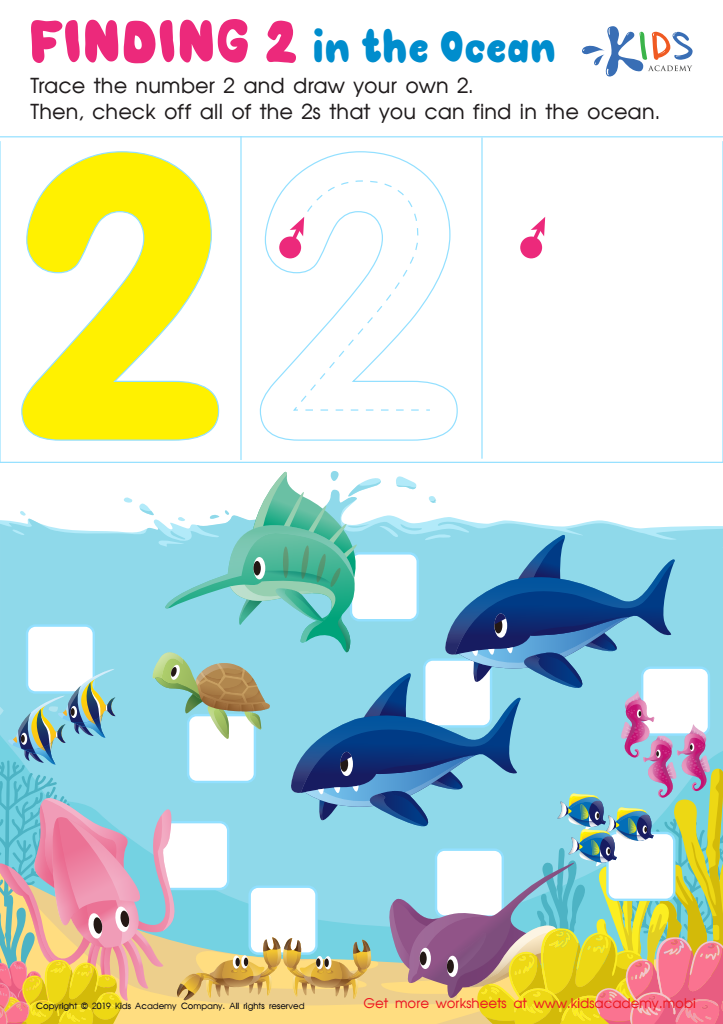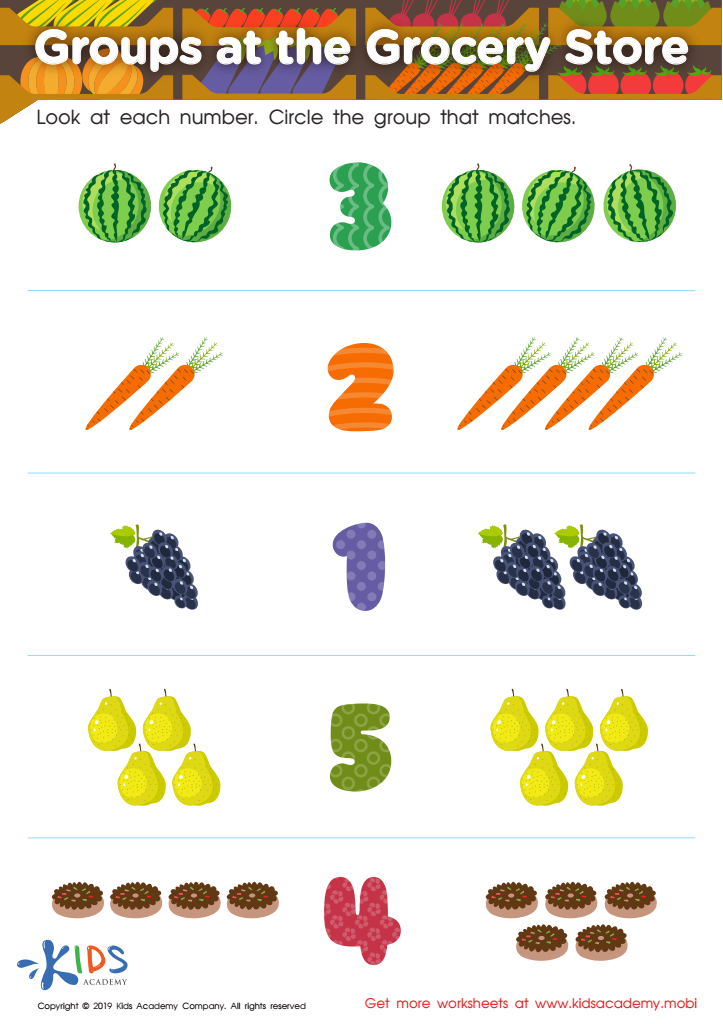Improve counting skills Easy Numbers Worksheets for Ages 3-5
3 filtered results
-
From - To
Enhance your child's counting skills with our Easy Numbers Worksheets, designed specifically for ages 3-5. These engaging and interactive worksheets provide a fun and effective way for young learners to practice counting, recognize numbers, and develop essential math skills. Our materials incorporate vibrant visuals and age-appropriate activities that captivate children's attention and promote learning through play. As they complete each worksheet, kids will build confidence and a solid foundation in numeracy. Perfect for both home and classroom use, our Easy Numbers Worksheets make mastering counting enjoyable, ensuring a positive learning experience for your little ones. Explore and watch them grow!


Rainforest Math Worksheet


Finding 2: In the Ocean Worksheet


Groups at the Grocery Store Worksheet
Improving counting skills for children ages 3-5 is vital for their early cognitive development. During these formative years, children are highly receptive to learning and lay the groundwork for future math skills. By nurturing their counting abilities, parents and teachers can significantly enhance children's numerical understanding and problem-solving skills.
Firstly, counting is more than just memorizing numbers; it lays the foundation for basic arithmetic, comparison, and pattern recognition. Mastery of counting helps children make sense of the world around them, as they start recognizing quantities and developing spatial awareness.
Moreover, engaging in counting activities fosters essential cognitive skills like concentration, memory, and critical thinking. These activities can be interactive and fun, making learning enjoyable and enhancing children's social skills through cooperative play.
Additionally, early counting skills can positively impact children's self-confidence. Children who feel accomplished in their counting abilities are more likely to enjoy math-related activities in the future, fostering a positive association with learning.
By prioritizing counting skills, parents and teachers can equip children with tools that support their educational journey, enhance school readiness, and encourage lifelong learning habits. Ultimately, nurturing these skills promotes holistic development, ensuring children are well-prepared for the challenges ahead.
 Assign to My Students
Assign to My Students





















